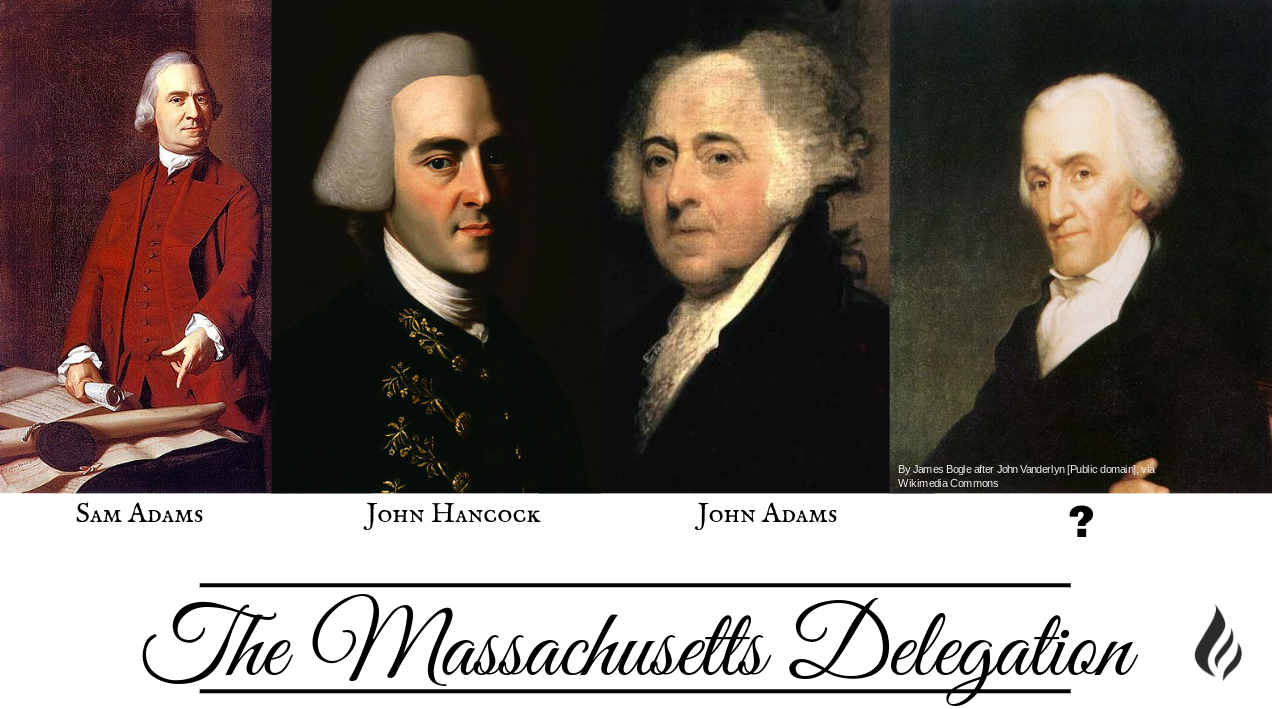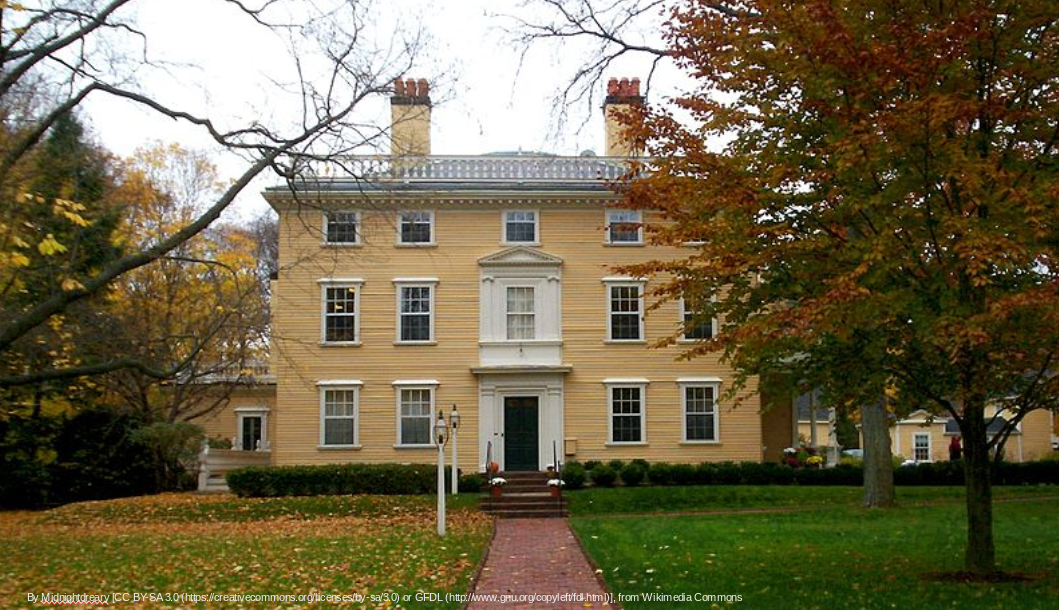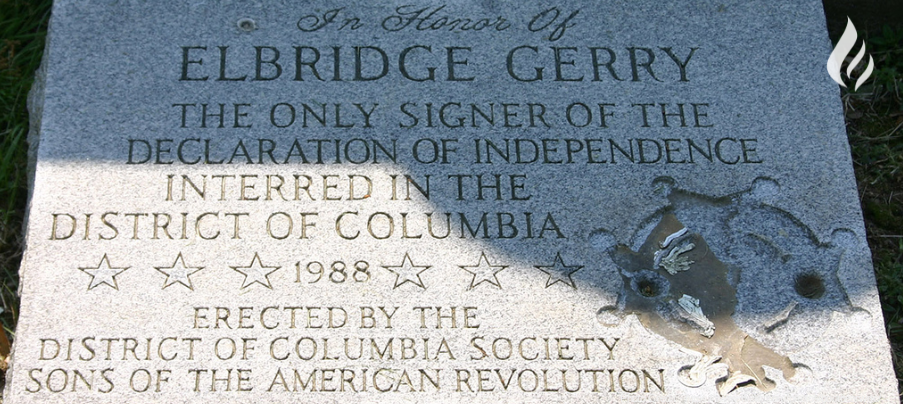Mark Cole
The Massachusetts delegation to the Continental Congress contained some of the most distinguished men of the founding era: John Hancock, Sam Adams, John Adams and Elbridge Gerry. These men would become central figures in the war for American independence and go on to hold the highest offices in Massachusetts and the United States.
Elbridge Gerry was always a man on the move. As the third of twelve children, one can imagine that there must have been a fast pace around his house growing up! He began Harvard when he was just fourteen years old. After graduation, he pursued business with enormous zeal and was quite successful. Oppressive British taxation harmed his business and his customers and drove him into the anti-British camp.
Gerry was 28 when he was elected to the General Court of Massachusetts, the colonial legislature. In 1776, when he was 32, he was elected to the Continental Congress.
When it came time for Gerry and the other representatives to take the oath and sign the defiant Declaration of Independence – which we now nominally celebrate with cookouts and fireworks – the specter of a public hanging must have blanketed the hot and oppressive room we now call Independence Hall.
No doubt each man could practically feel the hangman’s noose tighten around his throat.
Yet, in what was surely one of the few moments of levity during the solemn event, a portly Benjamin Harrison of Virginia told Gerry, one of the smaller delegates: “With me it will all be over in a minute, but you, you will be dancing on air an hour after I am gone.”
***
Contrary to Harrison’s grisly prophecy, Elbridge Gerry survived the war of American independence and went on to thrive in both business and politics.
He was elected to the Constitutional Convention but his conscience would not allow him to sign his name to the Constitution, as he did not believe that the new federal government was sufficiently contained.
Gerry was only one of three men at the Constitutional Convention who refused to sign that document. In fact, Elbridge Gerry is the only man who signed the Declaration of Independence who then later refused to sign the Constitution.
His refusal was borne of principle. He knew the Constitution would pass without him. Yet, with more concern for standing for principle than for his political future, Gerry refused to assent.
Gerry decisively lost that battle, as he knew he would. But he did so without making enemies among the supporters of the Constitution. And he did not leave the Convention with sour grapes.
Almost immediately, Gerry was called upon to serve under that same Constitution, and he did so without reluctance. He became a Congressman, and later the Governor of Massachusetts. John Adams (with whom he had substantial political disagreements) asked him to serve on a diplomatic mission in France. In each of these roles, he swore his fidelity to the Constitution.
Finally, James Madison – in many respects the father of the Constitution – asked him to be Vice President of the United States. Gerry agreed and served in that office, until he died in 1814.
On many occasions, Elbridge Gerry took the path with the most resistance, the path of principle, risk and sacrifice. He lived a long and prosperous life. Yet, on so many occasions, his business career, his political career, indeed, his life itself, could have been snatched from him. But he soldiered on, day after day, year after year.
For more awesome stories about the Signers –
Check out Mark’s book:
Lives, Fortunes, Sacred Honor: The Men Who Signed the Declaration of Independence

















